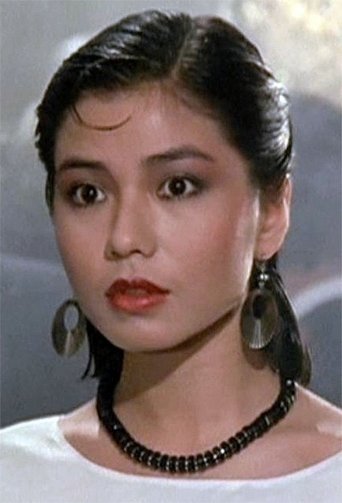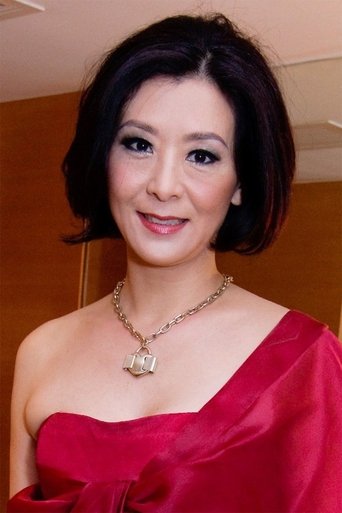Watch Jin Zhuang Da Jiu Dian Online (2017)
Analects of Confucius 論語top page. The Analects of Confucius 論語Translated by A. Charles Muller[Updated: 2. T1. 7: 1. 7: 3. 0. Table of Contents. First translated during the summer of 1.
Un libro (del latín liber, libri) es una obra impresa, manuscrita o pintada en una serie de hojas de papel, pergamino, vitela u otro material, unidas por un lado (es. Original Article. Noninvasive Detection of Clinically Occult Lymph-Node Metastases in Prostate Cancer. Mukesh G. Harisinghani, M.D., Jelle Barentsz, M.D., Ph.D.


Revised 2. 01. 7- 0. When citing, please refer to the URL of this page: http: //www.
Xue er 弟學而[1- 1] 子曰。學而時習之、不亦說乎。 有朋自遠方來、不亦樂乎。人不知而不慍、不亦君子乎。[1: 1] The Master said: “Isn't it a pleasure to study and practice what you have learned? Isn't it also great when friends visit from distant places? If people do not recognize me and it doesn't bother me, am I not a noble man?”[Comment] “Noble man” is an English translation for the Chinese term junzi 君子, which originally meant “son of a prince”—thus, someone from the nobility. Watch Arthur Newman Online Arthur Newman Full Movie Online. In the Analects, Confucius imbues the term with a special meaning. Though sometimes used strictly in its original sense, it also refers to a person who has made significant progress in the Way (dao) of self- cultivation, by developing a sense of justice 義, by loving treatment of parents 孝, respect for elders 弟, honesty with friends 信, etc.
Though the junzi is a highly advanced human being, he is still distinguished from the category of sage (shengren聖人), who is, in the Analects more of a “divine being,” usually a model from great antiquity. The character of the noble man, in contrast to the sage, is being taught as a tangible model for all in the here and now. Watch Demon Equation Youtube on this page. And although many descriptions of the requirements for junzi status seem quite out of our reach, there are many passages where Confucius labels a contemporary, or one of his disciples a “noble man,” intending a complement. Thus, the categorization is not so rigid. One might want to compare the term “noble man” to the Buddhist bodhisattva, in that both are the models for the tradition, both indicate a very high stage of human development as technical terms, yet both may be used colloquially to refer to a “really good person.”[1- 2] 有子曰。其爲人也孝弟、而好犯上者、鮮矣。不好犯上、而好作亂者、未之有也。君子務本、本立而道生。孝弟也者、其爲仁之本與。[1: 2] You Zi said: “There are few who have developed themselves filially and fraternally who enjoy offending their superiors. Those who do not enjoy offending superiors are never troublemakers.
Web oficial de la Universidade da Coruña. Enlaces a centros, departamentos, servicios, planes de estudios. La meditación (del latín meditatĭo, -ōnis) describe la práctica de un estado de atención concentrada, sobre un objeto externo, pensamiento, la propia.
The noble man concerns himself with the fundamentals. Once the fundamentals are established, the proper way appears. Are not filial piety and obedience to elders fundamental to the actualization of fundamental human goodness?”[Comment] The word ren仁 is perhaps the most fundamental concept in Confucian thought. It has been translated into English as “benevolence,” “altruism,” “goodness”, “humaneness” etc. It is a difficult concept to translate because it doesn't really refer to any specific type of virtue or positive endowment, but refers to an inner capacity possessed by all human beings to do good, as human beings should. It is the quality that makes humans human, and not animals. In earlier iterations of this translation I have gone through various transitions: at first I attempted to use a unified English rendering throughout the text.
I then pursued a strategy of leaving untranslated, as ren. Now I am presently leaning in the direction of translating the term variously, according to the context, but at present, remnants of all three strategies remain in the text. I intend to eventually sort this out.
In the Chinese “essence- function” 體用 paradigm, ren can be understood as the innate, unmanifest source of all kinds of manifestations of virtuosity: wisdom, filial piety, reverence, courtesy, love, sincerity, etc., all of which are aspects, or functions of ren. Through one's efforts at practicing at the function of ren, one may enhance and develop one's ren, until one may be called a noble man, or even better, a “humane person” 仁人.
In the Analects, to be called a “humane person” by the Master is an extremely high evaluation, rarely acknowledged for anyone.[1- 3] 子曰。巧言令色、鮮矣仁。[1: 3] The Master said: “Someone who is a clever speaker and maintains a contrived smile is seldom considered to be a really good person.”[1- 4] 曾子曰。吾日三省吾身、爲人謀而不忠乎。與朋友交而不信乎。傳不習乎。[1: 4] Ceng Zi said: “Each day I examine myself in three ways: in doing things for others, have I been disloyal? In my interactions with friends, have I been untrustworthy? Have not practiced what I have preached?”[1- 5] 子曰。道千乘之國、敬事而信、節用而愛人。使民以時。[1: 5] The Master said: “If you would govern a state of a thousand chariots (a small- to- middle- size state), you must pay strict attention to business, be true to your word, be economical in expenditure and love the people. You should employ them [appropriately] according to the seasons.”[Comment] “Usage of the people according to the seasons” is extremely important in an agriculture- based society, where planting, cultivating, or harvesting a certain crop during a certain few- day period can be critical. During the Spring and Autumn and Warring States periods in China, selfish and aggressive warlords frequently pulled farmers off their land at important farming times, to use them for public works projects, or have them fight in the ruler's personal wars.[1- 6] 子曰。弟子、入則孝、出則弟、謹而信、凡愛衆、而親仁。行有餘力、則以學文。[1: 6] The Master said: “A young man should serve his parents at home and be respectful to elders outside his home. He should be earnest and truthful, loving all, but become intimate with his innate good- heartedness. After doing this, if he has energy to spare, he can study literature and the arts.”[Comment] In the above- mentioned essence- function view, the development of one's proper relationship with one's parents and others around her/him is fundamental in life.
Only after these things are taken care of is it proper to go off and play at whatever one likes— even if this “play” involves the serious study of some art form.[1- 7] 子夏曰。賢賢易色、事父母、能竭其力、事君、能致其身、與朋友交、言而有信。雖曰未學、吾必謂之學矣。[1: 7] Zi Xia said: “If you can treat the worthy as worthy without strain, exert your utmost in serving your parents, devote your whole self in serving your prince, and be honest in speech when dealing with your friends. If you do this and someone says you are not learned (xue學), I would say that you are definitely learned.”[Comment] In the Confucian tradition, learning (xue) is more than intellectual, academic study, or the accumulation of facts (although this aspect is included).